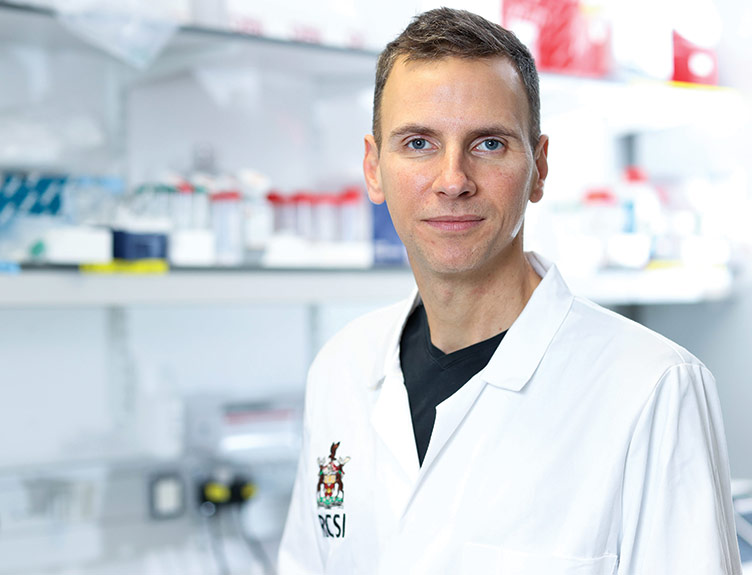RCSI MiniMed lectures to discuss innovation in pregnancy screening and breast cancer
The latest cutting-edge technologies and innovations in screening during pregnancy and treatment of breast cancer will be on the agenda for the latest instalment of the RCSI MiniMed Lecture Series 2014/2015 on Wednesday, 26 November.
These talks, free of charge to the public, will take place from 7-9pm at the College at 123 St Stephen's Green.
Professor and Chairman of the RCSI Department of Obstetrics and Gynaecology and the Rotunda Hospital, Professor Fergal Malone, in a lecture called ‘Screening in Pregnancy - Is my baby normal?', will speak on the options open to the Irish public for screening pregnancies for fetal abnormalities and update attendees on recent innovations in screening technology. Prof Malone will outline the options for actual invasive prenatal diagnosis as well as the subsequent options open to people, in terms of surgery and medical treatment, if any fetal problems are found. He will also discuss the decision-making process around pregnancy termination once a significant fetal abnormality is diagnosed.
Speaking ahead of his lecture, Prof. Malone said, “There have been a number of remarkable advances in the technology used during the pregnancy screening process such as using the mother's blood for fetal DNA testing. Given that there is no separate state funding behind screening in Ireland, I will outline the access issues as well as some recent controversies in accessing pregnancy termination.”
Professor Arnold Hill, Head of the School of Medicine and Professor of Surgery at RCSI will deliver the opening lecture of the evening entitled ‘Breast Cancer - what do we know now?' He will speak about how new breast cancer therapies, and how moving to a more personalised patient approach to managing breast cancer, has changed it from a disease that kills, to one where patients have learned to live and manage it as a chronic illness.
The various options to treating and managing the condition will be discussed and Prof. Hill will also detail the future challenges in the battle against breast cancer. He will detail the innovations in surgical techniques which are less invasive and have led to vast improvements in breast reconstruction procedures.
Prof. Hill said, “Due to these new developments in breast cancer surgery, the requirement for chemotherapy in patients has been significantly reduced. Many are also choosing to undergo risk reduction surgery, calculated by genetic mutation, as part of managing their risk of getting breast cancer in their lifetime, even though they may not have been diagnosed with the condition.”
The future challenges in breast cancer treatment will also be covered, which include working out which patients would respond best to surgery and drug therapies and which patients will not. Prof. Hill will also speak on the implications of survivors of the illness who remain in inherent fear of relapse.
“Even though there have been all of these wonderful progressions in breast cancer treatment and management, there is still a long way to go before we beat breast cancer. But this is a battle that we are winning!” continued Prof. Hill.



